We know Bryan Johnson for his carefully crafted and often controversial anti-aging regimen that he follows under his Blueprint Protocol. However, the health and lifestyle problems that put him on this journey are all quite relatable — one of them being poor sleep.
Bryan Johnson slept terribly his entire life. He was eventually able to turn that around by prioritizing sleep and taking his sleep routine seriously under his Blueprint regimen. As a result, he recorded potentially the best sleep score in human history (as measured by WHOOP) — eight months of a perfect, 100% sleep score.
Bryan Johnson’s sleep routine is worth exploring because the results speak for themselves. In this article, we’ll describe his top 10 sleeping habits and explore another crucial factor that could be keeping you awake at night — your genetic makeup.
Bryan Johnson’s sleep health goals: An overview
Sleep has always been a key element of longevity as it provides your body the necessary downtime for cellular repair and cognitive enhancement. A 2024 research found that sound sleep can extend the lifespan of men by 5 years and women by 2 years.
For Bryan Johnson, his sleep routine is all about maintaining his body’s internal clock so that he can get the maximum benefits of his sleep and reduce his biological age in the process. His focus has been not only on hitting the standard eight-hour sleep quota but also on ensuring his sleep quality is optimal.
To achieve his goals, Johnson has spent significant money on devices that track or aid his sleep, as well as in creating the perfect sleep environment with the right combination of infrastructure and products. Let’s explore his sleep essentials and key pre-bedtime habits in the following section.
Bryan Johnson’s sleep routine: 10 habits he swears by
Bryan Johnson’s inspiring achievement of a 100% sleep score for eight months is not a fluke. It’s the result of his dedicated sleep optimization techniques combined with his tailored diet and exercise.
His sleep routine consists of 10 habits that he follows religiously:
Prioritize sleep.
Have a consistent bedtime.
Have a pre-bedtime wind-down routine.
Eat your last meal of the day early.
Avoid coffee, alcohol, and other stimulants.
Regulate evening light exposure.
Optimize your bedroom temperature.
Have a peaceful sleeping environment + sleep alone.
Incorporate morning light exposure.
Gather and analyze data.
While these habits require sacrifice (say, a limited social life), they are scientifically proven and recommended by sleep experts worldwide.
1. Prioritize sleep
We live in a hustle culture where sleep deprivation has become an epidemic people put up with. Since it’s never an immediate concern to be addressed, your body keeps racking up damage, which can manifest as poor mental health and cognitive decline over time. Bryan Johnson recognized this as one of his main problems and decided to identify as a professional sleeper — essentially, making sleep his number one priority.
With the help of his Blueprint team, Johnson keeps his daily habits geared towards optimizing his sleep quality. Everything from his diet and meal times to his evening routine is curated so his body hits the right configuration to fall asleep by his bedtime.
Tip 💡
Your ability to have sound sleep is not only influenced by your routine and environmental factors. Your genetics also play a significant role here.
Genome-wide association studies have found insomnia and other sleep-related traits to be inheritable and can further trigger chronic conditions like major depressive disorder and diabetes.
The good news is that you can now have your DNA analyzed with Nucleus to understand the expression of such disease-causing genes. Nucleus offers a whole-genome DNA test kit that analyzes ~100% of your genome (genetic data) to uncover your risk for developing various diseases and conditions, including insomnia, diabetes, ADHD, and cancers.
Nucleus is clinical-grade and physician-approved — you can use your results to consult with doctors and make genetics-informed choices for sleep and other lifestyle habits. Order your kit today.
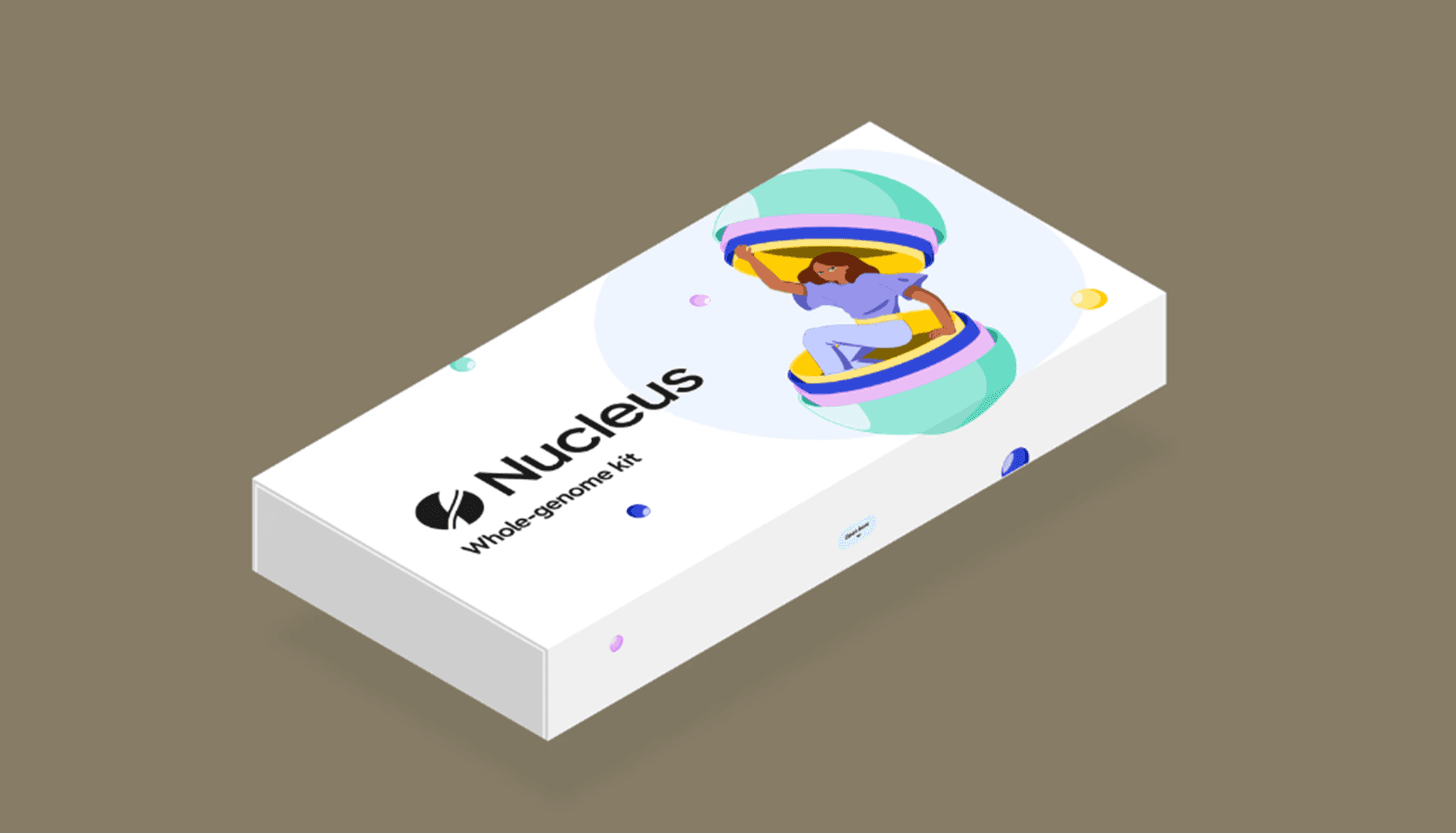
2. Have a consistent bedtime
The most important part of Bryan Johnson’s sleep routine is going to bed at the same time every night. He goes to sleep at 8:30 p.m. and wakes up at 5:00 a.m.
While this sleeping schedule fits his lifestyle, he recognizes that other people have different preferences. You may choose different sleep and wake times as long as you keep it consistent.
This is a scientifically proven approach, as a 2023 study shows that sleep regularity is a stronger predictor of mortality risk than sleep duration. So, even if you can’t get eight hours of sleep every night, you might access longevity benefits if you maintain your sleep schedule.
3. Have a pre-bedtime wind-down routine
Bryan Johnson’s sleep routine starts around 60 minutes before bedtime. During this period, he tries to avoid anything that would excite him, such as:
Getting into arguments
Tackling cognitively demanding problems
Checking work-related messages or emails
Watching stimulating content
His pre-bedtime wind-down routine consists of reading or writing a book, going for a walk, or enjoying a peaceful evening with friends and family. Most importantly, he avoids screens during this time, as they emit blue light (a known sleep disruptor).
4. Eat your last meal of the day early
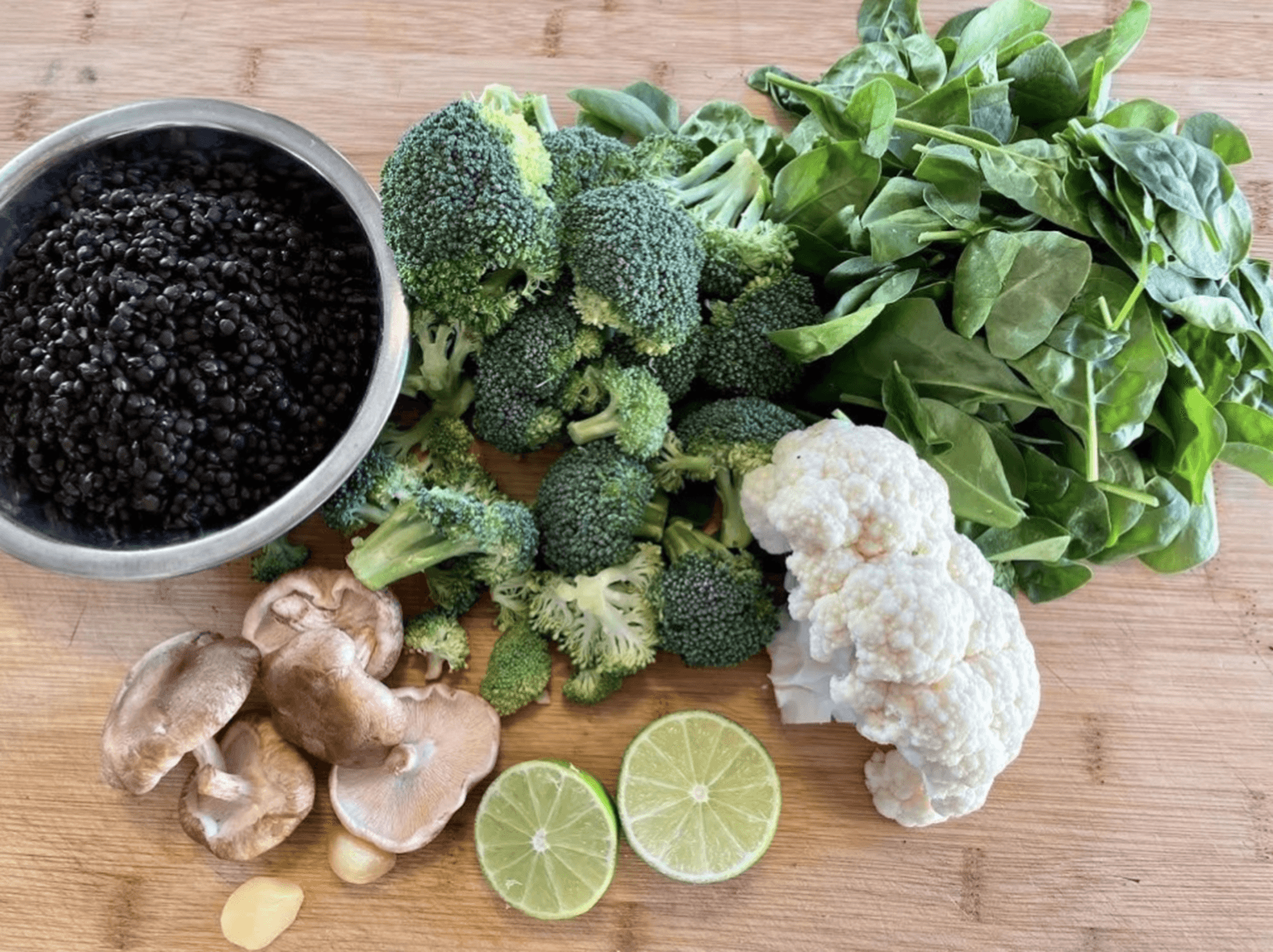
Source: Blueprint Protocol
Research shows that eating a heavy meal close to bedtime can negatively impact sleep, lowering the amount and quality of deep sleep. If you eat within three hours of going to bed, your body will still be working hard to digest food, so it won’t be able to get into a restful state.
Bryan Johnson has experimented with different diets and eating schedules and realized he gets the best sleep when he finishes his last meal by 11 a.m. He sometimes breaks this rule by eating a light steamed veggie meal at social gatherings later in the day.
5. Avoid coffee, alcohol, and other stimulants
Bryan Johnson’s sleep routine includes avoiding all stimulants, such as:
Caffeine
Alcohol
Nicotine
Psychoactive substances
Energy drinks
The data provided by his WHOOP band showed that having alcohol before bedtime reduced the quality of his sleep by 80%. He has also quit drinking caffeine, which has a proven negative effect on sleep onset time, duration, and quality.
Bryan used to drink a glass of wine daily but stopped once he realized the negative impact alcohol had on his sleep far outweighed any potential benefits from the flavonoids in wine.
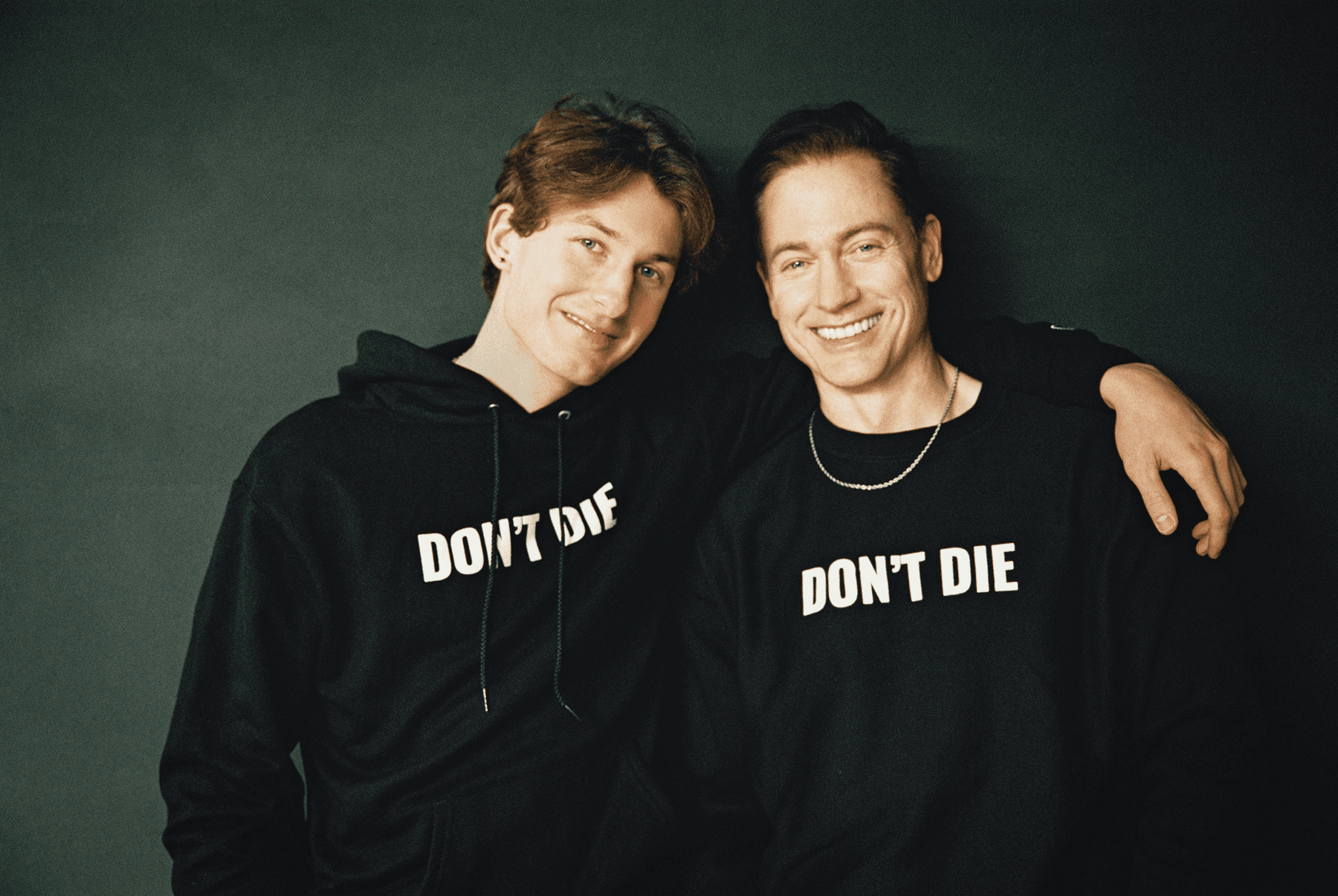
Source: Blueprint Protocol
Tip: You can try the Nucleus DNA test to uncover how your genetics influence your risk of alcohol dependency.
6. Regulate evening light exposure
One of the key things Bryan does to improve his sleep quality is avoiding evening light exposure. Here are some methods he uses to achieve this:
7. Optimize your bedroom temperature
Bryan Johnson maintains the perfect temperature in his bedroom to optimize his sleep. He uses the Eight Sleep Mattress to regulate the temperature, which hovers around 71°F during deep sleep and goes up to 73°F during REM sleep. He also uses air-conditioning to regulate room temperature and avoids heavy blankets and warm fabrics that could cause overheating.
Remember that finding your ideal sleep temperature will take some trial and error. According to a study, the ambient sleep temperature range for most people is between 68°F and 77°F.
8. Have a peaceful sleeping environment + sleep alone
A peaceful, noise-free sleeping environment is crucial for Bryan Johnson’s sleep routine, which includes sleeping alone to avoid disturbances.
Sharing a bed with your partner makes it hard to synchronize sleep routines and may lead to several disturbances that could keep you awake at night, such as:
Movement
Snoring
Blanket stealing
Toilet needs
Restlessness
Experts call sleeping alone in a relationship a sleep divorce. They recommend it to partners with clashing sleep routines and different preferences. This is another subjective element in Bryan’s sleep routine — for many people, sharing a bed with someone can provide comfort, security, and stress relief, leading to better sleep.
Bonus reads: Here are some other facets of Bryan Johnson’s anti-aging protocol that might interest you:
9. Incorporate morning light exposure
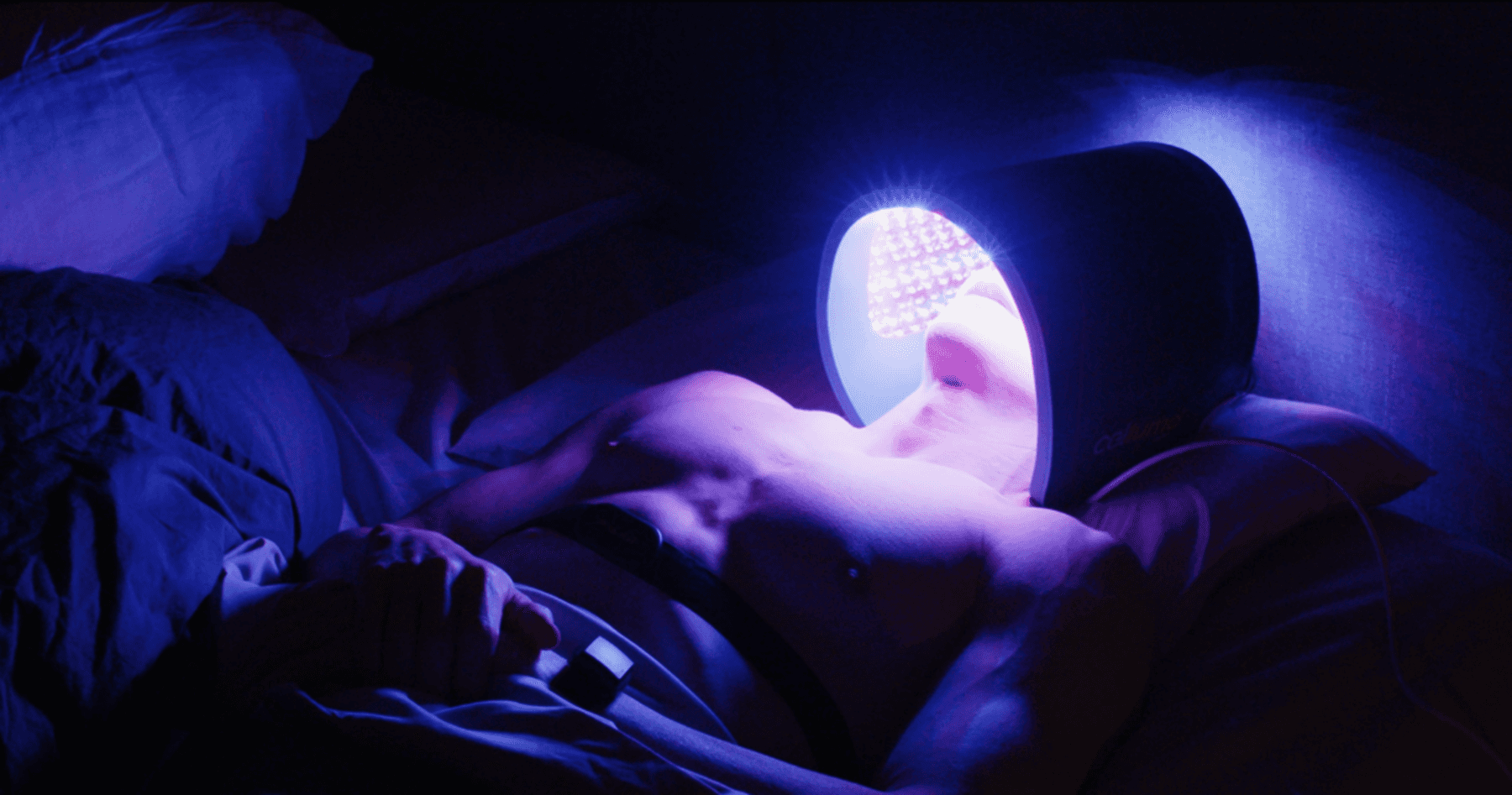
Source: Blueprint Protocol
Bryan Johnson’s sleep routine starts at 5 a.m., immediately after he wakes up. He exposes himself to 10,000 lux of artificial light, mimicking morning sun exposure. This practice helps regulate his circadian rhythm, allowing him to maintain a consistent sleep schedule.
Those waking up later can absorb natural light by spending time outside or near a window without wearing sunglasses. Morning light exposure can increase alertness and regulate melatonin production, keeping you wakeful during the day and setting you up for better sleep at night.
10. Gather and analyze data
Bryan Johnson uses a WHOOP band to gather and analyze sleep data, which allows him to quantify the impact of different lifestyle choices on his sleep. Some of the data he tracks include:
Sleep duration
Sleep quality
Daily exertion
Recovery
Resting heart rate
This analytical approach allows him to experiment with different daily routines to improve his sleep regimen. One such change he made is quitting alcohol after realizing it lowered his sleep quality by up to 80%.
What benefits Bryan the most is personalized data-tracking — you can also adopt an analytical approach toward your sleep by gathering your sleep tracker data and maintaining a log of the days you experience good vs. poor sleep.
Another area you can explore is how your genetics influence sleep and other longevity metrics. You can start your journey by getting a Nucleus DNA test that uses whole-genome sequencing to analyze ~100% of your DNA (most DNA tests today analyze <0.1%) to screen different areas of your health, including:
Heart diseases
Cancers
Mental health
Neurological conditions
Focus and energy
Food and diet
Discover how your DNA affects your sleep and longevity with Nucleus
Nucleus is the most affordable and accessible whole-genome DNA platform in the U.S. It offers a clinical-grade all-in-one health test to analyze your disease risks, genetic traits, intelligence scores, and more.
Nucleus combines DNA analyses with lifestyle factors like age, BMI, blood pressure, and cholesterol levels for a holistic reporting on your health and likelihood of developing the diseases you’re predisposed to. You can not only access analyses on your sleep traits but also other conditions that impact your quality of life, such as anxiety, bipolar disorder, migraine, and rheumatoid arthritis.
What makes Nucleus a must-have DNA test is the platform’s ability to detect rare and high-effect genetic variants (that often go unnoticed by other tests) but may cause diseases on their own.
The platform also partners with SteadyMD to connect you with board-certified genetic counselors who can recommend proactive measures and treatments tailored to your DNA results.
Take control of your health: Order your Nucleus DNA kit
Nucleus’ at-home DNA test kit can be ordered in a few simple steps:
Provide your personal information
Place your order — the kit costs [PRICE.KIT_SOLO.ONE] and is HSA/FSA eligible
Nucleus is unique because of its high testing integrity. Your DNA sample will be sequenced in the U.S. and on U.S. machines. The platform follows the regulatory standards of HIPAA, CAP, and CLIA.
You can access your results online in 6–8 weeks and can also opt to get ongoing health insights adjusted for new research and changes in your lifestyle factors.
Bonus: Nucleus is the go-to DNA platform for many health and longevity enthusiasts, including Bryan Johnson. He swabbed to get his Nucleus all-in-one health insights in the 2024 Don't Die Summit in San Francisco. You can watch the video here!
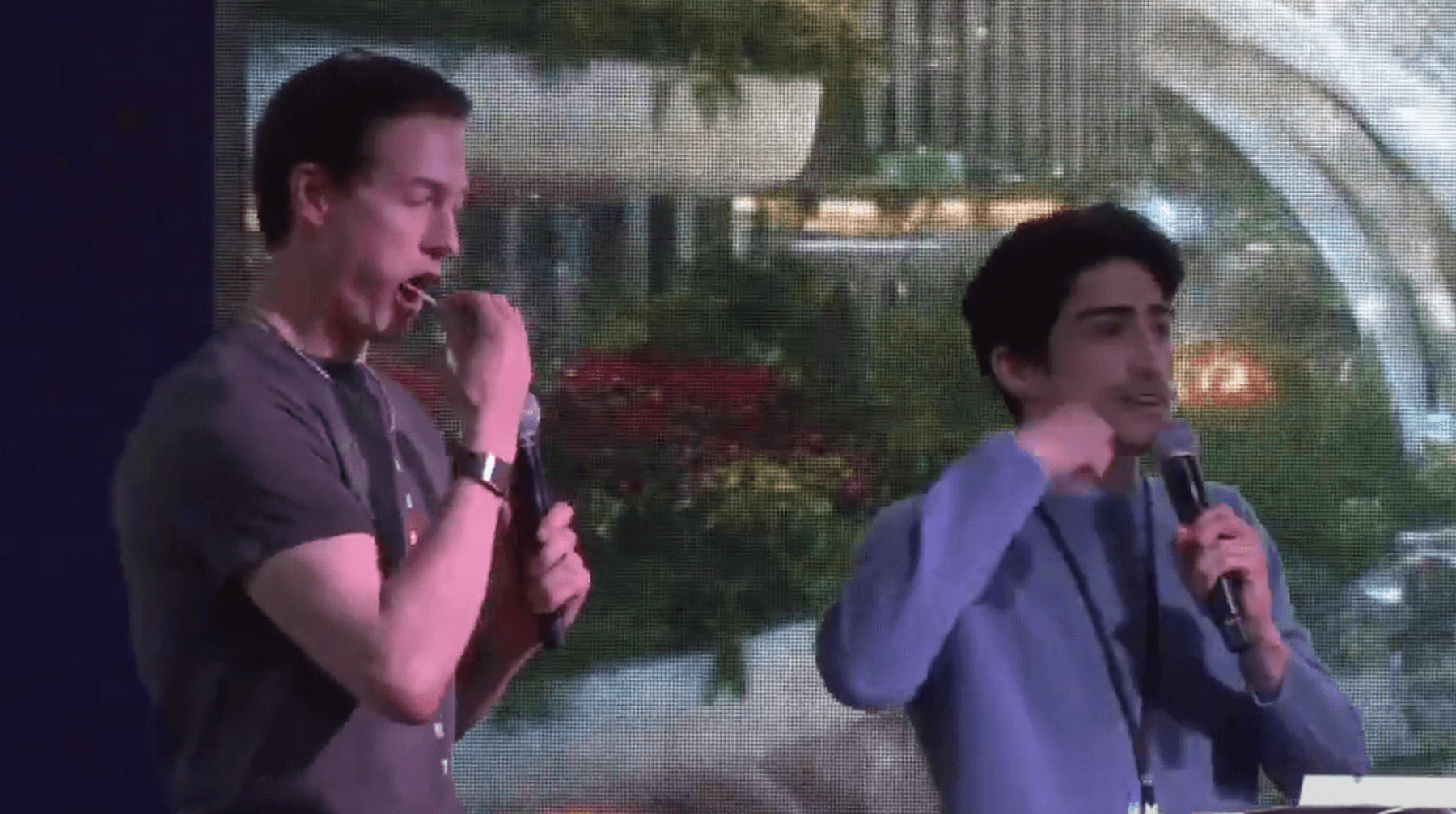
Featured image source: Blueprint Protocol












